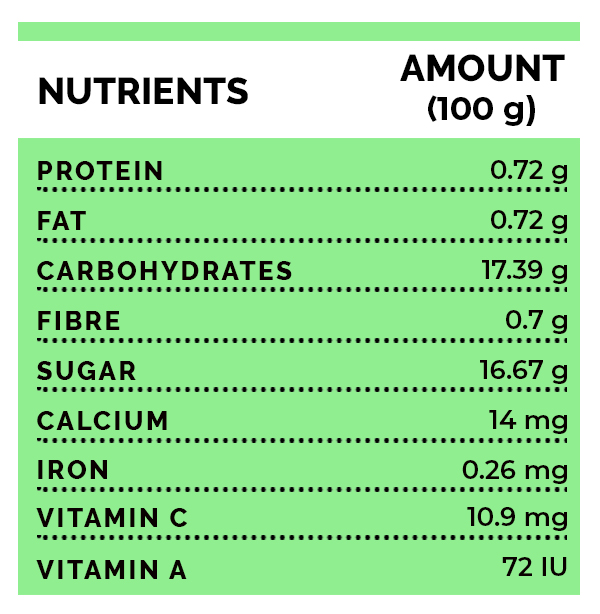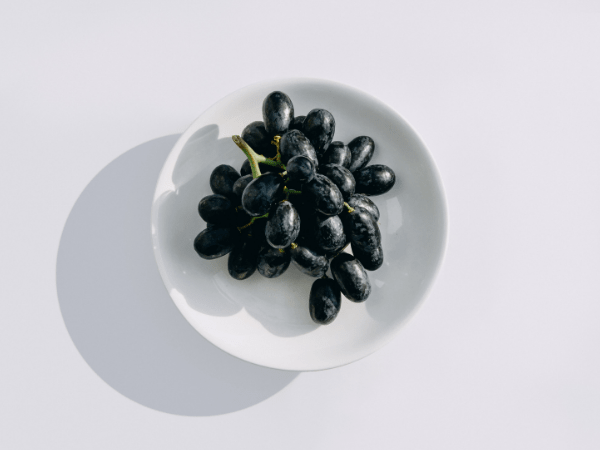Just In
- 4 min ago

- 3 hrs ago

- 4 hrs ago

- 9 hrs ago

Don't Miss
- Finance
 Results, Dividend, Fundraise On April24: Buy Top Bank Stock Amid Rich Valuation, TP Rs 1400: Nomura
Results, Dividend, Fundraise On April24: Buy Top Bank Stock Amid Rich Valuation, TP Rs 1400: Nomura - Sports
 Who Won Yesterday's IPL Match 33? PBKS vs MI, IPL 2024 on April 17: Mumbai Indians Escape Last-Ditched Fight by Punjab Kings To Win
Who Won Yesterday's IPL Match 33? PBKS vs MI, IPL 2024 on April 17: Mumbai Indians Escape Last-Ditched Fight by Punjab Kings To Win - Movies
 Do Aur Do Pyaar OTT Release Date & Platform: When & Where To Watch Vidya Balan’s Film After Theatrical Run?
Do Aur Do Pyaar OTT Release Date & Platform: When & Where To Watch Vidya Balan’s Film After Theatrical Run? - News
 BRS Chief K Chandrasekhar Rao Slams BJP, Says K Kavitha's Arrest Is Vendetta Politics
BRS Chief K Chandrasekhar Rao Slams BJP, Says K Kavitha's Arrest Is Vendetta Politics - Automobiles
 Aprilia RS 457 Accessories: A Detailed Look At The Prices
Aprilia RS 457 Accessories: A Detailed Look At The Prices - Education
 Karnataka SSLC Result 2024 Soon, Know How to Check Through Website, SMS and Digilocker
Karnataka SSLC Result 2024 Soon, Know How to Check Through Website, SMS and Digilocker - Technology
 Nothing Ear, Ear a With ANC, Up to 42.5 Hours of Battery Launched; Check Price and Availability
Nothing Ear, Ear a With ANC, Up to 42.5 Hours of Battery Launched; Check Price and Availability - Travel
Telangana's Waterfall: A Serene Escape Into Nature's Marvels
Grapes: Nutritional Health Benefits, Risks & Ways To Eat
Grapes are known for their velvety colour and sweet flavour. They possess innumerable health benefits due to their high nutrient and antioxidant content. Around 8,000 years ago, people first cultivated grape vines in the Middle East.
Grapes come in various colours like red, green, black, purple, yellow and pink. They also come in seeded and seedless varieties.

The delicious sweet and juicy grapes can be consumed fresh or raw, dried as raisins or in the form of juice, currents, sultanas and not to mention wine.
Nutritional Value Of Grapes
100 g of red or green grapes contain 65 kcal energy and they also contain
- 0.72 g protein
- 0.72 g fat
- 17.39 g carbohydrate
- 0.7 g fibre
- 16.67 g sugar
- 14 mg calcium
- 0.26 mg iron
- 10.9 mg vitamin C
- 72 IU vitamin A

Health Benefits Of Grapes
1. Prevent diabetes
Grapes have a low glycemic index of 53. Glycemic index (GI) is the measurement of how quickly a food raises blood sugar levels. A study showed that men who took 20 g of grape extract per day experienced lower blood sugar levels [1] . Resveratrol, a compound found in grapes is said to have a beneficial effect on blood sugar.
2. Improve heart health
Quercetin and resveratrol found in grapes lower the risk of atherosclerosis and protect against the damage caused by LDL cholesterol [2] . In a study, 69 people with high cholesterol who ate 500 g of red grapes per day for 8 weeks was shown to have lower bad cholesterol [3] .
3. Prevent cancer
Grapes are loaded with plant compounds, which may help protect against certain types of cancer [4] . Studies have shown that grape extracts inhibit the growth and spread of breast cancer and colon cancer cells [5] , [6] .

4. Manage blood pressure
Grapes contain good amounts of potassium, a mineral which helps maintain healthy blood pressure levels. High levels of potassium and low sodium levels in the body lowers the chances of heart diseases.
5. Maintain eye health
The beneficial plant compounds found in grapes protect the eyes from diseases like age-related macular degeneration and cataract. Resveratrol, a plant compound was found to protect retinal cells from UVA light [7] .
6. Lower inflammation
Resveratrol contains anti-inflammatory properties which have been shown to reduce the risk of chronic diseases like heart disease, arthritis, diabetes, cancer, etc. A study found that eating 1.5 cups of fresh grapes increased a lot of anti-inflammatory compounds in the blood [8] .

7. Boost cognitive health
According to a study published in the European Journal Of Nutrition, drinking 230 ml of grape juice improved both the speed of mood and memory-related skills 20 minutes after consumption [9] .
8. Promote bone health
Grapes contain resveratrol, calcium, vitamin K, manganese, magnesium, potassium all of which help improve bone density [10] . Studies in rats have shown resveratrol can improve bone density, but human studies are lacking.
9. Lower the symptoms of allergies
Due to the anti-inflammatory effects of resveratrol and quercetin, grapes can lower the symptoms of allergies, including watery eyes, hives, and runny nose.

10. Prevent bacteria, virus, and yeast infections
Grapes are an excellent source of vitamin C which has been shown to protect and fight against bacterial and viral infections from attacking the immune system. The beneficial plant compounds in grapes can prevent the spread of chicken pox, herpes virus, and yeast infections [11] .
11. Enhance skin health
Grapes are a good source of vitamin C and resveratrol which may delay ageing and improve skin health. A study published in the Journal Dermatology and Therapy shows that resveratrol can help treat acne if used with benzoyl peroxide [12] .
Potential Risks Of Grapes
Eating excess quantities of grapes, raisins, dried grapes, or sultanas may increase the chances of diarrhoea. Also, allergic reactions to grapes can cause stomach upset, nausea, vomiting, headache, etc.

Ways To Eat Grapes
- Grapes can be made into jellies, jams, and juices.
- You can consume grapes as a snack.
- Slice grapes and add them to a chicken or green salad.
- Use grapes in a fruit salad, fruit custard or fruit cocktail.
Grape Juice Recipe
Ingredients:
- 2 cups grapes
- 1/2 tbsp sugar
- 2-3 tsp lemon juice (optional)
- A pinch of salt
- 1/2 cup water
Method:
- Add all the ingredients in the juicer.
- Pour the juice into the glass and serve.
You could also make scrumptious dry grapes curry recipe.
- [1] Urquiaga, I., D’Acuña, S., Pérez, D., Dicenta, S., Echeverría, G., Rigotti, A., & Leighton, F. (2015). Wine grape pomace flour improves blood pressure, fasting glucose and protein damage in humans: a randomized controlled trial.Biological research,48(1), 49.
- [2] G Murillo, A., & L Fernandez, M. (2017). The relevance of dietary polyphenols in cardiovascular protection.Current pharmaceutical design,23(17), 2444-2452.
- [3] Rahbar, A. R., Mahmoudabadi, M. M. S., & Islam, M. S. (2015). Comparative effects of red and white grapes on oxidative markers and lipidemic parameters in adult hypercholesterolemic humans.Food & function,6(6), 1992-1998.
- [4] Pezzuto, J. M. (2008). Grapes and human health: a perspective.Journal of agricultural and food chemistry,56(16), 6777-6784.
- [5] Dinicola, S., Pasqualato, A., Cucina, A., Coluccia, P., Ferranti, F., Canipari, R., ... & Palombo, A. (2014). Grape seed extract suppresses MDA-MB231 breast cancer cell migration and invasion.European journal of nutrition,53(2), 421-431.
- [6] Valenzuela, M., Bastias, L., Montenegro, I., Werner, E., Madrid, A., Godoy, P., ... & Villena, J. (2018). Autumn Royal and Ribier Grape Juice Extracts Reduced Viability and Metastatic Potential of Colon Cancer Cells.Evidence-Based Complementary and Alternative Medicine,2018.
- [7] Tsai, H. Y., Ho, C. T., & Chen, Y. K. (2017). Biological actions and molecular effects of resveratrol, pterostilbene, and 3′-hydroxypterostilbene.journal of food and drug analysis,25(1), 134-147.
- [8] Barona, J., Blesso, C., Andersen, C., Park, Y., Lee, J., & Fernandez, M. (2012). Grape consumption increases anti-inflammatory markers and upregulates peripheral nitric oxide synthase in the absence of dyslipidemias in men with metabolic syndrome.Nutrients,4(12), 1945-1957.
- [9] Haskell-Ramsay, C. F., Stuart, R. C., Okello, E. J., & Watson, A. W. (2017). Cognitive and mood improvements following acute supplementation with purple grape juice in healthy young adults.European journal of nutrition,56(8), 2621-2631.
- [10] Lin, Q., Huang, Y. M., Xiao, B. X., & Ren, G. F. (2005). Effects of resveratrol on bone mineral density in ovarectomized rats.International journal of biomedical science : IJBS,1(1), 76–81.
- [11] Berardi, V., Ricci, F., Castelli, M., Galati, G., & Risuleo, G. (2009). Resveratrol exhibits a strong cytotoxic activity in cultured cells and has an antiviral action against polyomavirus: potential clinical use.Journal of Experimental & Clinical Cancer Research,28(1), 96.
- [12] Taylor, E. J., Yu, Y., Champer, J., & Kim, J. (). Resveratrol Demonstrates Antimicrobial Effects Against Propionibacterium acnes In Vitro.Dermatology and therapy,4(2), 249–257.
-
 healthInstagram Claims Grapes Are Contaminated With Pesticides, Methods To Clean It Properly Before Consuming Them
healthInstagram Claims Grapes Are Contaminated With Pesticides, Methods To Clean It Properly Before Consuming Them -
 healthWeight Loss: What Happens When You Drink Grape Juice Every Day Without Sugar? Can It Burn Fat?
healthWeight Loss: What Happens When You Drink Grape Juice Every Day Without Sugar? Can It Burn Fat? -
 healthWhat Happens When You Eat 5 Grapes Every Morning On Empty Stomach?
healthWhat Happens When You Eat 5 Grapes Every Morning On Empty Stomach? -
 beautyGrapes In Summer: Is It Good For Your Skin?
beautyGrapes In Summer: Is It Good For Your Skin? -
 skin care3 Simple Ways To Use Grapes For Your Skin
skin care3 Simple Ways To Use Grapes For Your Skin -
 wellnessEating Grapes May Reduce Risk Of Sunburn: How Many Should You Eat?
wellnessEating Grapes May Reduce Risk Of Sunburn: How Many Should You Eat? -
 wellnessDaily Consumption Of Grapes Is Linked To Longevity And Reduced Risk Of Fatty Liver Diseases: Study
wellnessDaily Consumption Of Grapes Is Linked To Longevity And Reduced Risk Of Fatty Liver Diseases: Study -
 nutrition7 Health Benefits Of Concord Grapes
nutrition7 Health Benefits Of Concord Grapes -
 wellnessBenefits Of Concord Grapes For Kidney Health
wellnessBenefits Of Concord Grapes For Kidney Health -
 nutrition10 Health Benefits Of Grape Seeds You Should Know
nutrition10 Health Benefits Of Grape Seeds You Should Know -
 skin careGet Glowing Skin With These Grape Face Packs
skin careGet Glowing Skin With These Grape Face Packs -
 diet fitnessAre Grapes Bad For You When Trying To Lose Weight?
diet fitnessAre Grapes Bad For You When Trying To Lose Weight?


 Click it and Unblock the Notifications
Click it and Unblock the Notifications



